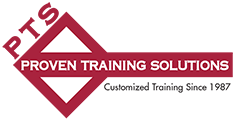Sensitivity Training For Physicians: Why it matters!
Bill Walsh discusses sensitivity training for doctors
I have spent my summer hosting several sensitivity training courses specifically for doctors. Over the last few years the demand for sensitivity training for physicians has dramatically increased! For this reason I have developed a specific proven training curriculum that caters to individuals employed in the medical field. In today's blog I want to talk about this new curriculum and why sensitivity training for individuals in this important industry is approached a little bit differently.
I mentioned in my last blog, Sensitivity Training for Executives that sensitivity training can be extremely beneficial for all workplaces. Not only does sensitivity training help to assure that everyone is conducting themselves in a respectful and professional manner, it also helps to clarify some of the common questions that employees have about workplace interactions. When your employees receive sensitivity training they are less likely to act inappropriately or put your corporation at risk of interpersonal liabilities.
When it comes to sensitivity training for doctors, this is extremely important! Not only because physicians need to represent themselves professionally around their co-workers but also because they have to be conscious about how they behave around patients.
Throughout the day medical professionals encounter a variety of different people in various circumstances. It is important that they know how to responsibly engage and interact with these patients while also remaining professional and adhering to the conduct guidelines that have been established by their employer.
All of these components are addressed in the Proven Training Solutions Sensitivity Training For Doctors training program. This curriculum has been specifically designed for medical professionals and the things that they encounter every day in their industry.
Concepts Covered in Sensitivity Training For Doctors
I. Understand and Reinforce the Need for Sensitivity & Communication Skills Training
- Review the realities of insensitivity, discrimination and harassment
- Identify the importance of sensitivity training for doctors
- Participate in a sensitivity & bias assessment
- Understand the importance of being sensitive to different peoples
- Identify individual responsibility in preventing insensitivity or harassment
- Understand the legal liabilities of insensitivity, discrimination and harassment
- Realize how communication style can contribute to insensitivity & perceived disrespect
II. Establish Respect as the Platform for Developing an Inclusive Healthcare Workplace
- Define what a respectful health care environment should look like in your organization
- Gain an improved understanding of the right attitudes to create a respectful workplace
- Learn the communication skills to succeed in a diverse healthcare environment
- Incorporate respect for yourself and others as a core value
- Define and explain both real and perceived insensitivity, discrimination or harassment
- Identify the 10 most common patterns of insensitivity & disrespectful behavior
- Develop the foundation for a sensitive and inclusive healthcare and work environment
III. Increase Sensitivity & Awareness in Healthcare with Respectful Communication Skills
- Communicate & review hospital or practice anti-harassment/discrimination policies during sensitivity training for doctors
- Identify state and federally protected groups
- Learn the steps necessary to establish the correct workplace environment
- Communicate and work more effectively with different people and personalities
- Understand how communication styles can affect people’s perceptions understandings
- Overcome the most common stereotypes
- Review courteous & respectful communication
- Review courteous and respectful behavior in healthcare settings
- Develop an individual action plan to increase sensitivity & respectful communication
Lately, I have been busy hosting sensitivity training courses for medical facilities that wish to provide this important training to their staff.
I believe that this program can be extremely beneficial for physicians because it provides them with the information that they need to work without concerns about sensitivity issues.
It is an excellent for all medical employers to provide this special training for their employees to dramatically reduce the risk of liability and ensure a standard of conduct is upheld!
- Bill Walsh

